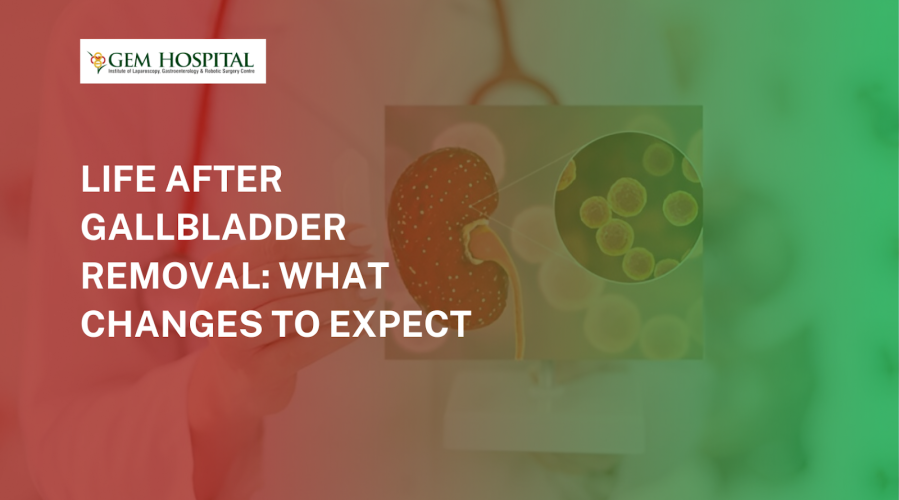Learn effective solutions for digestive problems with expert tips to improve gut health, reduce discomfort, and maintain a healthy digestive system.
Life After Gallbladder Removal: What Changes to Expect

Gallbladder removal, or cholecystectomy, is a surgical procedure that's often performed to treat patients with gallstones or inflammation of the gallbladder. Although this surgery can be considered safe, and typically effective, many patients are concerned with what life will be like after their gallbladder removal.
Understanding the Gallbladder’s Role
The gallbladder is a small organ nestled under the liver. Its purpose is to store and release bile, a fluid used to digest fats. During gallbladder removal (also known as cholecystectomy), this organ is taken out due to conditions like gallstones or infection.
After gallbladder removal, your liver still produces bile. However, instead of being stored, the bile flows directly into the small intestine. This change can slightly affect how your body digests food, especially high-fat foods, which may become harder to break down efficiently.
Life After Gallbladder Removal: Immediate Changes
1. Post-Surgery Recovery
- Most people will recover within 1 - 2 weeks of having laparoscopic surgery.
- You might have some pain, bloating, or diarrhea for a short period of time.
- You are encouraged to gradually resume physical activity.
2. Digestive Adjustments
- Some people may feel different in how they digest fatty, greasy meals.
- Mild diarrhea or more frequent bowel movements will be more common for you at first.
- Your digestive system will adapt over time and most symptoms will improve.
Long-Term Lifestyle & Dietary Tips
Eat Smaller, More Frequent Meals
Avoid large heavy meals. Smaller portions are less stressful on your digestive system.
Reduce Fat Intake
Because bile will be less concentrated, fatty foods could be harder to digest, so choose lean meats, low-fat dairy, and healthy oils to cook with.
Increase Fiber Slowly
Increase fiber slowly in your diet to prevent gas and bloating with high-fiber foods such as oats, fruits, and vegetables.
Stay Hydrated
Drinking enough water will facilitate digestion and prevent constipation.
Common Questions About Life After Gallbladder Removal
Can I Eat Normally Again?
Yes, but you may have to make some changes. While many people use gallbladder surgery as an "excuse" to return to their normal diet, there are a few that have to avoid high-fat and fried foods probably permanently.
Will I Gain or Lose Weight?
There is a lot of variation in weight changes after gallbladder surgery. Some people may not be eating higher fat diets so their weight changes and some do gain weight if they don't consider their fat intake.
Is Long-Term Medication Required?
For most people, the answer is no unless you continue to have digestive issues in the long term. If you continue to have symptoms of health problems like acidity, bloating, come see a specialist.
When to Seek Medical Help?
While most symptoms are manageable, seek medical attention if you experience:
- Severe abdominal pain
- Yellowing of the skin or eyes (jaundice)
- Persistent diarrhea
- Vomiting or fever
What You Can Expect
Life after gallbladder removal can feel different at first but with a few adjustments, most patients enjoy a completely normal, healthy life. To summarize:
- Expect minor digestive changes post-surgery
- Avoid fatty, greasy, and spicy foods initially
- Stay hydrated and eat small, frequent meals
- Monitor symptoms and follow up with your doctor
GEM Hospital offers specialized consultations for expert support and guidance on recovery after surgery that involves your digestive system. So, whether you’ve had gallbladder surgery recently, or are about to have gallbladder surgery, you can book your appointment now for personal care and dietary advice that is suitable to your needs.
Blogs & Article
Explore current research trends in digestive health, including new treatments, advanced diagnostics, and innovations improving gut health and patient care.
Discover common digestive health myths and the real facts. Learn simple tips to improve gut health and maintain better digestion for a healthier life.


